Findings of a study on prevalence of Female Genital Mutilation (khatna) among Bohras, to be unveiled by Shashi Tharoor today, reveals shame, pain and helplessness, making a strong case for legal reform
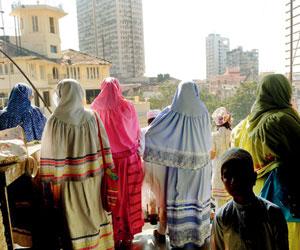
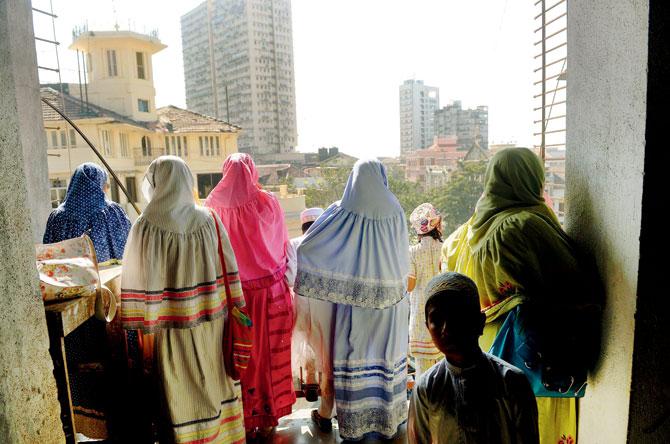
Bohra brand of Islam is followed by 1.2 million people worldwide. PIC/AFP; FOR REPRESENTATION PURPOSE ONLY
A first-of-its-kind study to release today in Delhi by MP Shashi Tharoor, on female genital mutilation and cutting (FGM/C) among Bohras in India, has revealed the mental and physical trauma that women face while practicing the tradition. While 97 per cent of the 83 women surveyed, recalled the experience as "painful", 33 per cent claimed it had negatively impacted their sexual life, and 10 per cent reported of having developed urinary problems after.
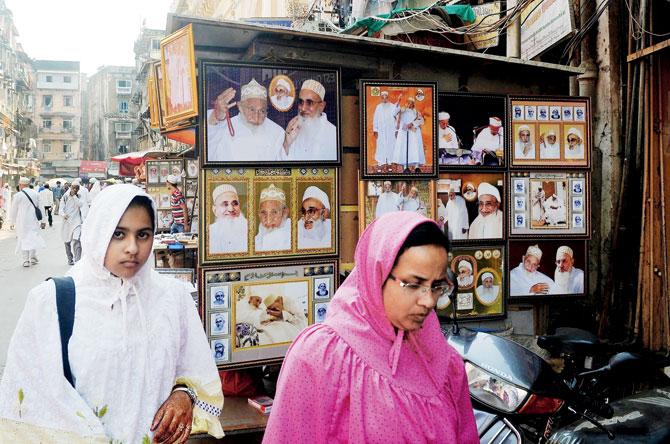
The Bohra brand of Islam is followed by 1.2 million people worldwide and is a sect of Shia Islam that originated in Yemen. PIC/AFP; FOR REPRESENTATION PURPOSE ONLY
The study, titled The Clitoral Hood a Contested Site: Khafd or FGM/C in India, was undertaken by Lakshmi Anantnarayan, Shaban Diler and Natasha Menon in collaboration with WeSpeakOut, the largest survivor-led movement to end the practice among Bohras, in collaboration with Nari Samta Manch, a trust for gender equality. The team behind it says the findings are a fitting reply to the Ministry of Women and Child Development. In its affidavit to the Supreme Court in December 2017 — following a petition to ban the practice — the Ministry had claimed that there was "no official data to support the existence of FGM/C in India".
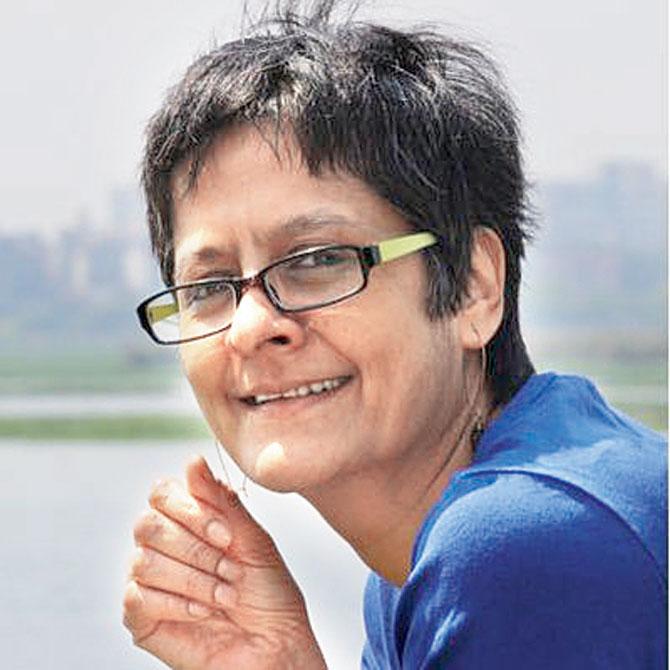
Masooma Ranalvi, founder, WeSpeakOut
The study, which was funded by Maharashtra Foundation, a New York based non-profit that promotes economic empowerment and social justice, and AmplifyChange, which among other issues works against sexual and gender based violence, included responses from 94 participants of which 83 were women and 11 were men. Data indicated that 81 women in the sample had been subjected to khafd, also called khatna or FGM. While most recalled it as a traumatic experience, 37 per cent participants supported it, 43 per cent opposed it, 16 per cent changed their mind from pro to anti, and 4 per cent remained undecided.

Lakshmi Anantnarayan, writer of the study
"This is the first-ever qualitative research study of its kind. Nothing like this has been done before," claimed Masooma Ranalvi, founder, WeSpeakOut. Indian participants for the study were selected from 12 locations across five states including Gujarat, Madhya Pradesh, Maharashtra, Rajasthan, and Kerala. Additionally, Bohra expatriates from three countries — Canada, United Arab Emirates, and the United States of America — also participated in the study. The sample also included traditional circumcisers, healthcare professionals, and teachers.The team says it took care to cover a wide socio-economic bracket, diverse geographical locations including metropolises, small towns and medium cities, and covered the Reformists, Conformists, Alvi Bohras, etc.
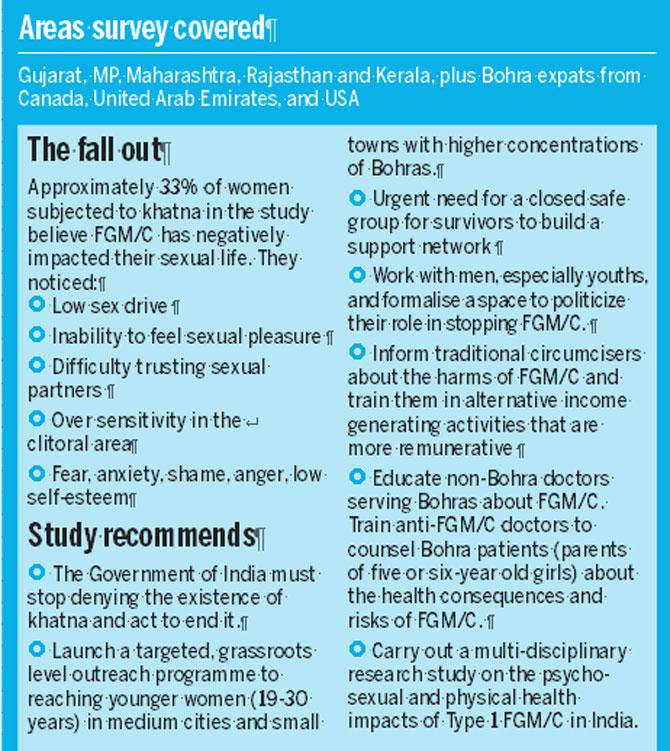
Key findings
The 59-page report reveals startling statistics and trends regarding the practice in India. According to the report, 75 per cent of all women, who participated in the study sample, said their daughters were also subjected to FGM/C. Further, 97 per cent women, who had undergone khatna, recalled the experience from childhood as "painful". While most women said they suffered immediate pain from the procedure, only two women said they did not experience any immediate or long-term impact.
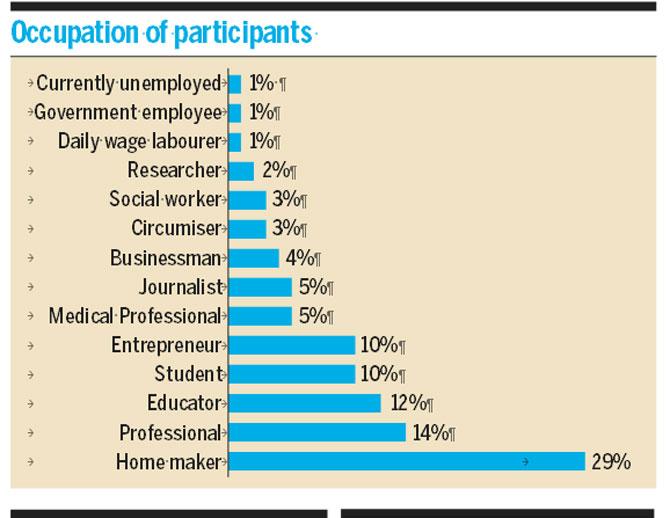
Despite sex being a taboo subject, approximately 33 per cent of the women subjected to FGM/C in the study admitted that it had negatively impacted their sexual life. Low sex drive, inability to experience sexual pleasure, difficulty in trusting partners, and over-sensitivity in the clitoral area were some of the problems they identified.
Nearly 10 per cent of the women, who had undergone the procedure from the current study, specifically mentioned urinary problems, recurring UTI and burning. Respondents said they had felt fear, anxiety, shame, anger, depression, low self-esteem, and betrayal of trust following khatna.
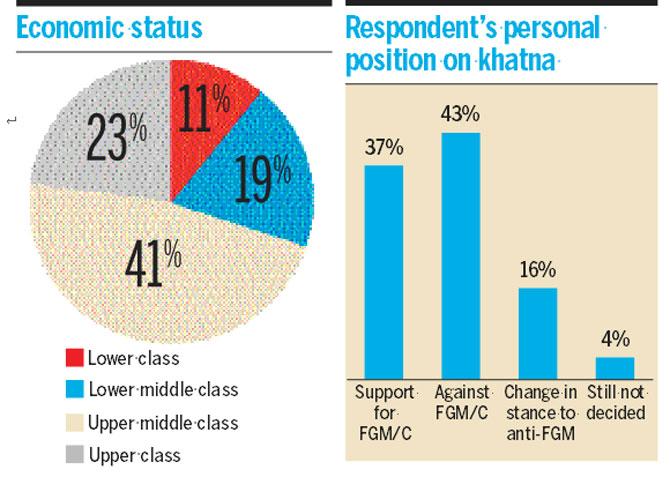
'Khatna exists'
The report, which is rich in honest narratives from survivors, including an eight-year-old girl, who underwent FGM/C last year and was stitched up 12 hours after a botched up procedure, was undertaken following an affidavit submitted by the Ministry of Women and Child Development's to the apex court, which stated that there was no data by the National Crime Records Bureau to support its practice or existence in India.
The Ministry's affidavit was in response to a petition by advocate Sunita Tiwari seeking a ban on the practice that some girls within the Bohra community are subjected to. "The first step is to declare it as a crime, only then will government bodies like NCRB carry out further research," said Ranalvi. "Anyone who doubts or denies the existence of FGM/C in India must read this report," she added.
'More than just a nick'
Supporters of the practice in India claim that the practice is not FGM/C because "it is just a nick on the clitoral hood, which is just useless skin". But the writer of the study, Lakshmi Anantnarayan, who is an independent researcher with holds a masters in social work and sustainable international development, said, "Most women subjected to khatna in India undergo type 1 FGM/C or clitoridectomy (partial or total removal of the clitoral hood) and very few younger women may be subjected to type 4 FGM/C (pricking, piercing, cauterisation)."
Dr Sujaat Vali, gynaecologist, who observed FGM/C in 20 female Bohra patients for the report, also confirmed that Type 1 FGM/C is the predominant practice in India, but said it was "more than just a nick" as otherwise presumed. "Given that most girls are cut at age seven, without anaesthesia, by traditional cutters, and the procedure happens in a minute or two, the operator does not get enough time to figure the separation between the clitoris and the skin it. So, usually, they end up cutting the clitoris along with the skin that covers it," Vali pointed out in the study.
FGM among Bohras in India became a subject of heated debate when two international legal cases against practicing Bohras in Australia and the US, came to light. The protesters hope to end the practice through legal reform in India and by raising community awareness about the psychological impact of the tradition on women. Unfortunately, few national-level studies have been conducted and published, often giving the supporters the right to cite 'lack of evidence' about the impact of FGM/C in India to argue that it is not harmful.
81 No. from 83 female respondents subjected to khatna
75 Percent Said their daughters were also subjected to khatna
97 Percent Remember khatna as “painful”
Download the new mid-day Android and iOS apps to get updates on all the latest and trending stories on the go
 Subscribe today by clicking the link and stay updated with the latest news!" Click here!
Subscribe today by clicking the link and stay updated with the latest news!" Click here!









